 A trademark is a form of intellectual property right (IPR) that facilitates brand protection, which is crucial for companies in today’s world. Like other forms of IPR, a trademark is a territorial right and thus must be registered in all the major jurisdictions in which a company operates or plans to operate. A sound trademarks strategy will go a long way in ensuring a high brand valuation.
A trademark is a form of intellectual property right (IPR) that facilitates brand protection, which is crucial for companies in today’s world. Like other forms of IPR, a trademark is a territorial right and thus must be registered in all the major jurisdictions in which a company operates or plans to operate. A sound trademarks strategy will go a long way in ensuring a high brand valuation.
Filing and registering of trademarks can be quite expensive. Fortune 500 companies spend millions of dollars on trademark protection. Thus, accurate estimation of trademark costs is a vital necessity for these companies. However, estimating said costs can be a challenging and time-consuming task. Each stage of the trademarking process (filing, prosecution, registration, and renewal) has various types of costs (official, associate/attorney, and/or translation) associated with it.
For instance, let us consider a priority application filed in a single class in the U.S., which is to be electronically filed in the top 20 trademark jurisdictions (excluding the U.S.), namely Argentina (AR), Australia (AU), Brazil (BR), Canada (CA), Chile (CL), China (CN), European Union (EU), Hong Kong Special Administrative Region of the People’s Republic of China (HK), India (IN), Indonesia (ID), Japan (JP), South Korea (KR), Mexico (MX), Russia (RU) Switzerland (CH), Turkey (TR), Ukraine (UA), Vietnam (VN), and Thailand (TH) (World IP Indicators 2015, WIPO).
Of the above mentioned countries, Australia, China, European Union, India, Japan, South Korea, Mexico, Russia, Switzerland, Turkey, Ukraine, and Vietnam are members of the Madrid Protocol (MP), which is an international treaty that makes it easier to register trademarks in member countries. It is assumed that an international application under the Madrid Protocol designating these countries is filed with the U.S. as the originating office, with Convention applications being filed in the remaining countries.
The total estimated costs to file, register, and renew a single-class trademark for one term in the U.S. and the other seven Convention countries vary from $1,274 in Thailand to $3,160 in the U.S., while the same amounts to $8,956 under the Madrid Protocol (Figure 1). These and the other estimates given below are based on the values found within the fee schedules supplied by at least five independent IP law associates in each jurisdiction and are for the basic processing of straight-forward applications (do not include charges for responses to office actions, arguments, and other work). Attorney fees have not been included in the estimates for the Madrid Protocol application.

The above mentioned estimates are inclusive of Value Added Tax (applicable to the associate charges and translation costs) for Argentina (21%), Canada (5%), Chile (19%), Indonesia (10%), and Thailand (7%).
The estimated costs (including the attorney costs) to file a single-class trademark in the U.S. and the other seven Convention countries vary from $676 in Brazil to $1,260 in Argentina, while the same amounts to $4,164 under the Madrid Protocol (Figure 2). The individual country filing fees under the Madrid Protocol vary from $64 in India to $925 in the EU (Figure 3). The estimates include the costs for translating one page into the official language in Argentina, Brazil, Chile, and Indonesia, in addition to the associate charges for recording the power of attorney and legalization in Argentina, the associate charges for legalization in Chile, the official and associate charges for proof of use in Thailand, and the basic fee, USPTO certification fee, and the individual filing fee or complementary fee for each designated country in the Madrid Protocol application.


The estimated costs (including the attorney costs) to be paid at the time of trademark registration in the U.S. and the other seven Convention countries vary from $175 in the US to $1,063 in Brazil, while the same amounts to $236 under the Madrid Protocol (Figure 4). Brazil, Canada, Chile, Indonesia, and Thailand have official charges to be paid at the time of registration. Among the Madrid Protocol countries, only Japan has registration fees (second part of the two-part fee structure).

Estimates for renewing the trademark for one term (including the attorney costs) in the U.S. and the other seven Convention countries vary from $320 in Thailand to $2,120 in the U.S., while the same amounts to $4,556 under the Madrid Protocol (Figure 5). The estimates are inclusive of the costs for filing combined affidavits under Section 8 (affidavit of use) and Section 15 (incontestability) in the U.S., in addition to the costs for filing an “Affidavit of Continued Use” under Section 9 in the U.S. The individual country renewal fees under the Madrid Protocol vary from $80 in India to $925 in the EU (Figure 6).
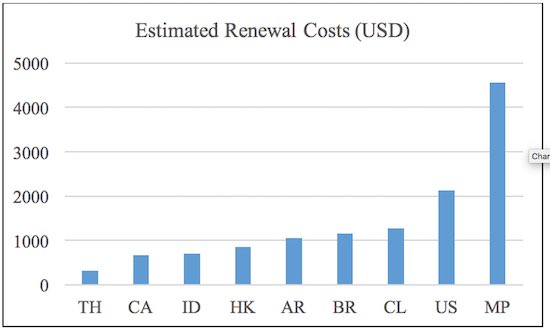
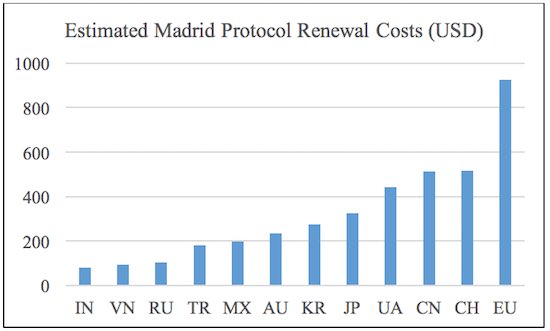
The estimated costs for each stage are expressed as a % of the total costs in Table 1.
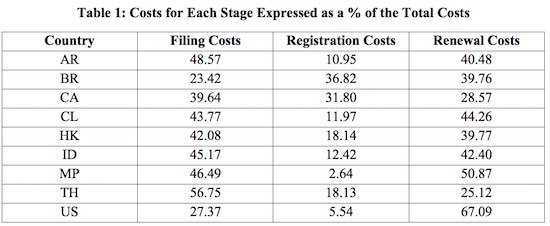
Optionally, an applicant can also request that a search be conducted by the National Trademarks Office in which an application is to be filed (where applicable) or by an attorney. The trademarks offices in Argentina, Brazil, Hong Kong, Indonesia, and Thailand have provisions for an official search. Estimates for requesting an official/attorney search range from $215 in Thailand to $650 in the U.S (Figure 7).
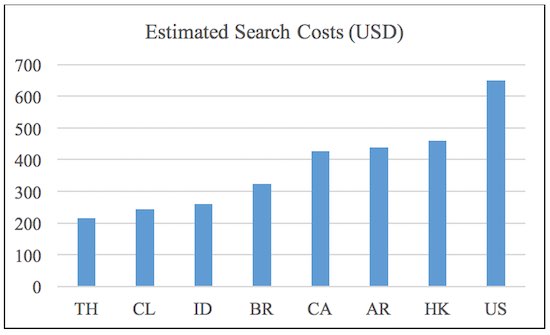
Thus, based on the above mentioned filing parameters, an applicant would require $27,846 (excluding search) or 30,865 (including search) to file single-class trademark applications in said jurisdictions and renew the registered trademarks for one term. Estimating costs at such a granular level can facilitate better strategic decision-making and budget forecasting.

![[IPWatchdog Logo]](https://ipwatchdog.com/wp-content/themes/IPWatchdog%20-%202023/assets/images/temp/logo-small@2x.png)
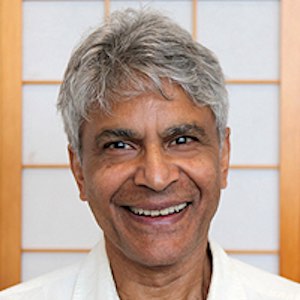

![[Advertisement]](https://ipwatchdog.com/wp-content/uploads/2024/04/Artificial-Intelligence-2024-REPLAY-sidebar-700x500-corrected.jpg)
![[Advertisement]](https://ipwatchdog.com/wp-content/uploads/2024/04/UnitedLex-May-2-2024-sidebar-700x500-1.jpg)
![[Advertisement]](https://ipwatchdog.com/wp-content/uploads/2024/04/Patent-Litigation-Masters-2024-sidebar-700x500-1.jpg)

![[Advertisement]](https://ipwatchdog.com/wp-content/uploads/2021/12/WEBINAR-336-x-280-px.png)
![[Advertisement]](https://ipwatchdog.com/wp-content/uploads/2021/12/2021-Patent-Practice-on-Demand-recorded-Feb-2021-336-x-280.jpg)
![[Advertisement]](https://ipwatchdog.com/wp-content/uploads/2021/12/Ad-4-The-Invent-Patent-System™.png)






Join the Discussion
No comments yet.